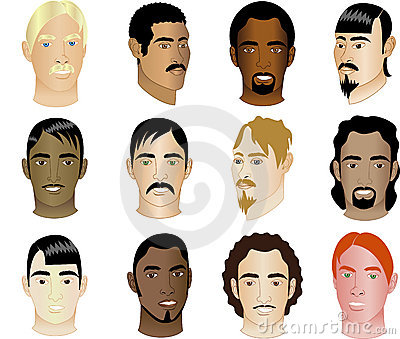In his theory of power, Foucault poses the concept of
pastoral power, which is the technique of lead and direct the subjects under
his rule similarly to the way it makes the shepherd with his sheep. The
interesting and novel of this technique imposed by Christianity was that
"salvation" is individual, and so the shepherd of souls must meet
each and every one of the members of his flock. He had to know not only what
these sheep did, but also what they thought, felt and wanted. Thereby, the
shepherd would be able to better guide them and, if they go astray, leading
them back to the flock.
The pastoral power of the Church disappeared, or was
limited to active believers, but pastoral power remained and began to spread
throughout society . Thus, the modern state emerged as the new and more
effective form of pastoral power, with certain differences regarding the
proposal of Christianity: an old form converted in a functional one in a
different society. Religious goals were not sought, that is, lead to humans to
their eternal salvation, but their goals were more mundane, more earthly. The
State is then worry about the health, welfare and safety of its population.
Thus, the pastoral power of the modern state tended to
act on the behavior of citizens, ensuring that these behaviors will not depart
from those considered "healthy" and "normal". This new
pastoral power also requires knowledge to lead and guide better and more
effectively the subjects; knowledge on
the one hand, globalizing and quantitative refer to all; and, on the other
hand, analytical skills, qualitative, individualizing, of each of its members.
So the study of medicine, psychiatry, psychology and behavioral sciences in
general arise.
Then, it must be known the behavior of all, the whole
herd as well as each of the members of the flock. To be able to exercise this individualizing
tactic it will be necessary to appear numerous and different powers, such as
the family, psychiatric knowledge, pedagogical, medical and clinical knowledge.
At the same time, it will require the emergence of Managers who exercise the
power everywhere, that is, the mother and father, who exercise the family
power; psychiatrist, which exercises the doctor-mental power; teacher, educational
exercising power; medical, clinical exercised power, etc. It is a constant mode
of action of each other: the teacher on students, parents over children, the
doctor on the sick, psychiatrist on the patient.
In this society with this new pastoral power takes
place a double paradoxical link: for one hand, it individualize the subjects to
know what they think, what they do, what they want. The purpose of this
individualization is not to accept the uniqueness of each person, but change
their behavior in order to homogenize them into the new category that has been
invented: the normal. Such society individualize to homogenize. What is
paradoxical is the fact that individualization is used as a technique to
integrate all subject to a globalizing whole, in which all are alike and become
part of the same.
The fights that Foucault poses are also paradoxical.
On the one hand, one fights against the technique of individualization. When
someone leaves the average considered as normal, whether for more or for less;
then the power discharge, over that which escapes the normal, full battery of
techniques to drive it again to the whole. Examples of these techniques are persuasion,
seduction, blackmail, to stay in again a psychiatric or confinement in jail.
But, on the other hand the fight is also against the techniques of mass
homogenization of citizens. This fight tries that differences and singularities
are recognized, respected and tolerated.
In my opinion, it is interesting the view of Foucault,
as he proposes the performance of power as a process of individuation which
aims to homogenize society. What is implied is that the goal of the power is to
eliminate differences between individuals. However, I think the argument is a
fallacy, as it present as paradoxical something that is not necessarily so.
According to Foucault, fighting against individualization and combating homogenization
is paradoxical. However, there are two facts that are not taken into
consideration and for this reason I think his argument is fallacious. On the
one hand, the fact that there are two struggles in society does not mean that
all members participate in the two of them. It is fully possible, as it
happens, that there are individuals who struggle against homogenization, others
against the individualization and others who do not fight. Moreover, if even
exist some who fight in both battles, it does not mean that they are
contradicting themselves. There is an intermediate, a balance between
individualization and homogenization is also possible and perhaps optimal for society.
In other words, homogenization does not mean accepting a single type of
behavior, but a set of behaviors that belong to the range of
"normal". While people are in that range, the society worked
correctly and the execution of power to homogenize is not necessary. However,
within that range there are differences that must be respected and tolerated.
For me, Foucault presents a world of extremes, a world
of blacks and whites and leaves no room for grays.


No comments:
Post a Comment